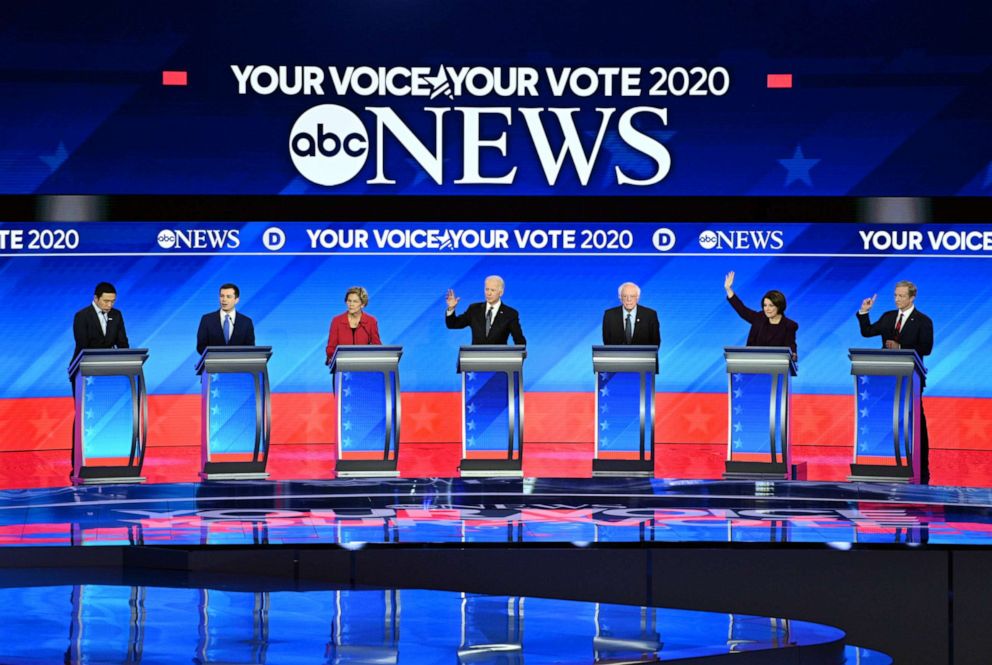Democrats face their biggest challenge yet -- it's anyone's race at this point: OPINION
No one has yet taken control of the Democratic field.
Working for campaigns on both sides of the aisle, I often preached “Yes, let’s have our strategy, but let’s not get out over our skis.” People covering politics today in an age of disruption and unpredictability would be wise to keep that in mind, especially after the last few days in politics.
In the span of 10 days we have gone from having one front-runner (Joe Biden) to having another front-runner (Bernie Sanders) to today having no clear front-runner at all in the race for the Democratic nomination.
Actually, I believe I could reasonably make the argument that four or five candidates have the ability to secure the Democratic nomination at this point. And one possibility today is no candidate goes into the Democratic convention with the required number of delegates to win a first ballot nomination.
In recent history, we have gotten used to the Democratic field narrowing very quickly to a one-on-one race. It happened in 2008 with the race coming down to Barack Obama and Hillary Clinton very quickly (they had nearly 80% of the vote between them), and in 2016 between Hillary Clinton and Bernie Sanders (nearly 100% of the vote between them).
This year is an entirely different moment, and this field narrowing to two candidates is highly unlikely any time soon. The voters will want their say in the caucus and primary events ahead, and we in politics who cover this race should give them that space.

Yes, Sanders won a plurality of votes in Iowa and New Hampshire, but as of today the Vermont senator is not in first place in delegates (due to rules in Iowa that allow caucus-goers to realign after expressing their initial candidate preferences). He also has not demonstrated an ability to get more than 30% of the vote among Democratic voters during this election cycle, so we shall see if his ceiling and his floor are roughly the same. And he also has underperformed by a huge degree from his vote totals in 2016 in Iowa (nearly 50% compared to 26%) and New Hampshire (60% compared to 26%).
Buttigieg, the former mayor of South Bend, Indiana, has been a surprise candidate and has exceeded expectations in both of the contests thus far, securing a very slight delegate lead. We shall see if he can keep this momentum going as we move into Nevada and South Carolina. But Buttigieg has shown he may face challenges getting votes from people of color.
Minnesota Sen. Amy Klobuchar also exceeded expectations in New Hampshire and was not far behind Sanders and Buttigieg there, demonstrating an ability to get women voters. Women will account for at least 60% of all votes to be cast in the remaining 55 contests across the country. What we don’t know is if she has the infrastructure in place to keep the trajectory going and if in the debate next week can she have another stand-out performance.
And Michael Bloomberg, who is spending millions in Super Tuesday contests and beyond, is likely to pick up a number of delegates in large states along the way. As Joe Biden has fallen, he got a shot, but if voters coalesce around just a couple of candidates in next few weeks, it limits Bloomberg's ability to succeed. Also, we have no idea how he will do in Democratic debates which he will soon be included in.
For Biden and Elizabeth Warren, their candidacies could be in jeopardy if they don’t gain some momentum in either Nevada or South Carolina. Can either one of them be the "Comeback Kid" of this cycle? The odds increasingly do not appear to be in their favor.
This is going to be an exciting path ahead as we watch who emerges and is ability to grasp the mantle of change. The winner of the Democratic nomination will be the one who most readily adapts to a changing political environment. And that is one lesson the Trump election in 2016 should definitely teach all of us.
Matthew Dowd is the chief political analyst for ABC News. Opinions expressed in this column do not necessarily reflect the views of ABC News.




